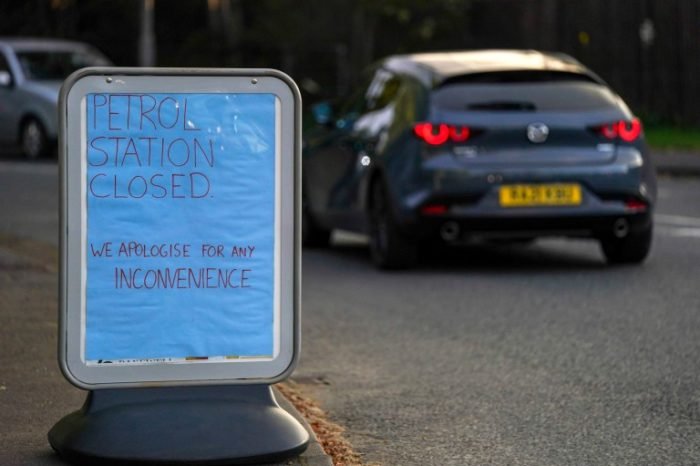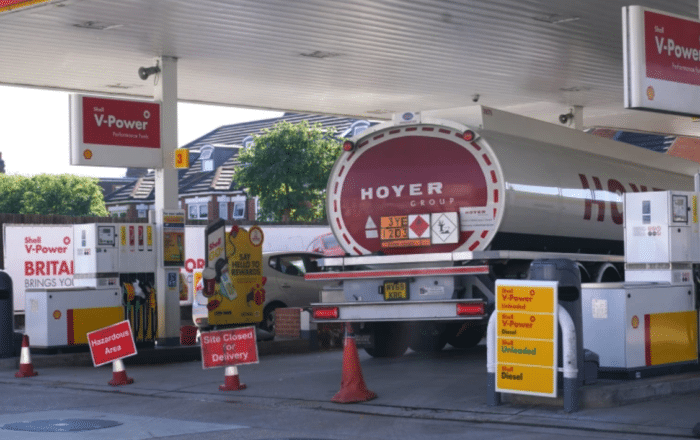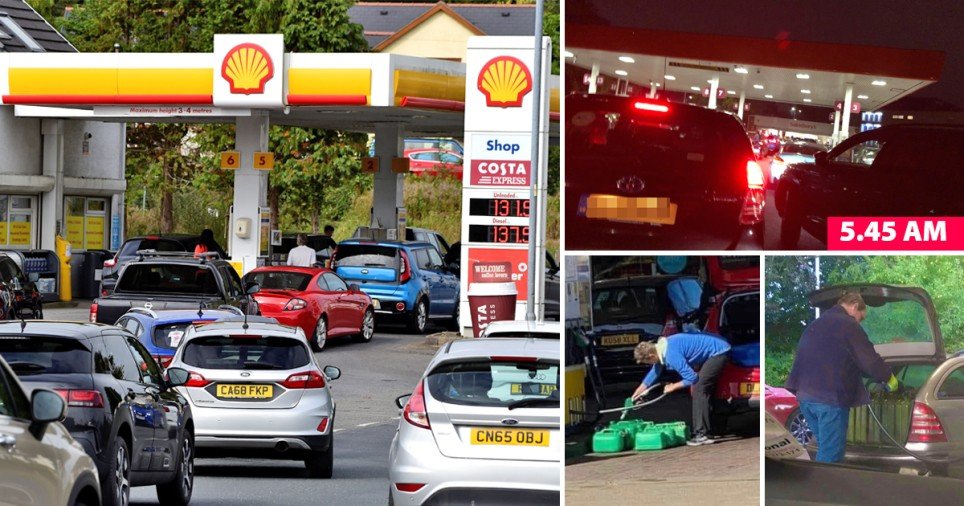The mundane image of lorries chugging up and down Britain’s motorways has become the vision haunting government ministers’ nightmares.
An acute national shortage of HGV drivers is causing havoc across the economy and could plague the country throughout the winter.
The UK’s manufacturing and retail industries are totally dependent on the movement of goods via road but, right now, that isn’t happening as it should.
It’s already leading to shortages in supermarkets and on petrol forecourts, amid fears of panic buying.
Remarkably, transport secretary Grant Shapps has even signaled he’s open to drafting in the army.
Why is it happening and can it be fixed? Here’s everything you need to know.
Why is there a shortage of lorry drivers?
In short, there are three main factors: Covid-19, Brexit and systemic problems which have been dogging the trade for years.
First, Covid. During the pandemic, HGV driving tests had to be stopped, meaning fewer people were entering the business.
At the same time, thousands of drivers facing reduced hours or furlough left the trade (many of them to join the booming home delivery business).
Then factor in Brexit. Some EU workers lost the right to work in the UK and a host of new border regulations were put in place, making it harder to work between Britain and the continent.
And that is all set against the backdrop of an industry which has struggled to recruit for several years and has an ageing workforce.
These three factors have combined and left the country with far fewer drivers than it needs.

How many more drivers does the economy need to function?
Trade body Logistics UK puts the shortage at around 90,000. According to the Road Haulage Association, it’s 100,000.
According to data obtained by The Grocer, about 70,000 drivers left the trade during the pandemic, around 12,500 of them EU nationals.
What effect is the shortage having?
You might have noticed sporadic empty shelves at your local supermarket in recent weeks.
You may also have found yourself queuing a long time for petrol, or even that your usual garage is closed altogether.
In general, the UK isn’t short of any products or resources but retailers are struggling to move things around the country.
Warehouses aren’t empty. They’re full – and often having to stay that way because distributors can’t find someone to drive the lorry. It could even have an impact on Christmas.
Why isn’t the government bringing in foreign drivers?
Some industry leaders want the profession added to a limited list of trades where workers can easily obtain the right to work in Britain because of shortages.
The government has resisted this, saying it would be a short-term fix, but there are reports it could U-turn soon.
There is some justification for this. According to reports, Poland has a driver shortage of 123,000 and Germany has a shortfall of 76,000.
Other EU countries are facing similar Covid-related recruitment problems, so it’s unclear how much of a rush there would be even if the UK opened the doors.
What is the government doing about it?
Transport secretary Grant Shapps is determined to address the shortfall by recruiting domestic workers and has increased capacity for HGV licence testing to try and reach that goal. Rules on how long workers can drive for before being legally obliged to take a break have also been relaxed.
The government has not ruled out drafting in the army to assist if the distribution of critical resources is impacted.
How much money do lorry drivers make?
Until recently, not enough – Grant Shapps even admitted that part of the recruitment problem has been drivers haven’t been paid well enough.
But now lorry drivers are practically naming their price. For example, John Lewis is hiring drivers for more than it pays head office executives.

